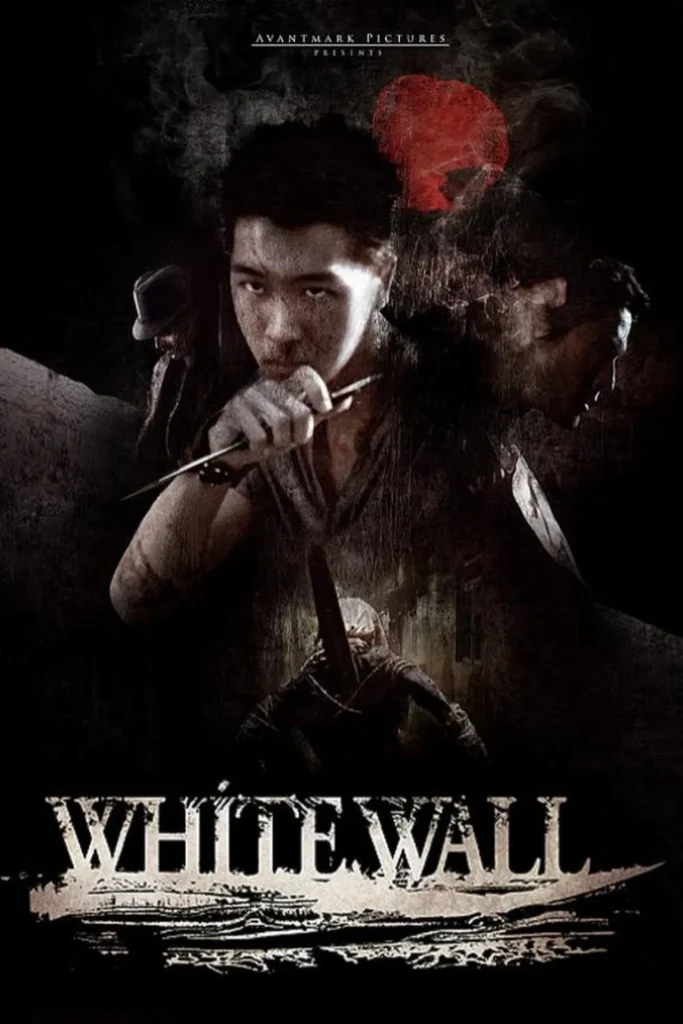
Director: James Boss
Writer: Vivian Kyinn
Genre: Sci-Fi, Action, Thriller
Runtime: 91 minutes
Language: English
Country: United States
IMDb Rating: 3.1/10
Rotten Tomatoes Audience Score: 63%
Plot: Survival Behind the Wall
Set in a dystopian future ravaged by the VXII virus, White Wall follows Shawn Kors (James Boss), a former child soldier turned janitor, who resides within one of the last quarantined cities protected by a massive white wall. When he discovers the body of a fellow survivor, Shawn is thrust back into a world of violence and conspiracy, confronting his past and the oppressive regime that governs the remnants of humanity.
Cast
James Boss as Shawn Kors
Michael Teh as Jude Black
Gary Kohn as Dryden
Aurelie Kyinn as Elsa Lei
John Klemantaski as Dr. Eric Lei
The film features a cast that delivers performances aligning with the gritty and somber tone of the narrative, with James Boss leading both in front of and behind the camera.
Themes: Brotherhood and Redemption
White Wall delves into themes of brotherhood, redemption, and the human spirit’s resilience in the face of systemic oppression. The narrative explores the psychological scars left by warfare and the struggle to reclaim one’s humanity amidst chaos.
Reception: Mixed Reviews
The film has garnered a mixed reception. Some viewers appreciate its unique blend of martial arts and science fiction elements, noting its “genre-bending originality” and “impressive cinematography.” Others criticize it for its pacing and narrative coherence, with comments highlighting it as “slow, boring, badly acted.”
The Critic’s Verdict
White Wall presents an ambitious attempt to fuse martial arts action with post-apocalyptic storytelling. While it showcases moments of visual and thematic intrigue, inconsistencies in execution may hinder its impact.
Rating: 5/10
A conceptually rich film that may appeal to fans of indie sci-fi action, but falls short in execution.
Pair With
Equilibrium (2002) for its dystopian themes and stylized action, or The Book of Eli (2010) for a journey through a post-apocalyptic landscape.
Cultural Footprint
White Wall contributes to the indie sci-fi genre by attempting to merge martial arts choreography with dystopian narratives, reflecting the versatility and challenges of independent filmmaking.
Addition
In addition to its exploration of post-apocalyptic survival and martial arts action, White Wall (2010) delves into the psychological ramifications of trauma and the quest for redemption. Shawn Kors, portrayed by James Boss, embodies a character haunted by his past as a child soldier, navigating a world where trust is scarce and survival is paramount. The film’s narrative structure emphasizes the internal struggle between embracing one’s violent history and seeking a peaceful existence, a theme that resonates with audiences familiar with stories of personal transformation.
Moreover, the film’s aesthetic choices contribute to its thematic depth. The cinematography employs a muted color palette, reflecting the desolation of the setting and the characters’ emotional states. The use of tight framing and close-up shots intensifies the sense of confinement within the walled city, symbolizing the characters’ entrapment both physically and psychologically. These visual elements, combined with a minimalist score, create an atmosphere of tension and introspection, encouraging viewers to contemplate the cost of survival in a fractured society.
